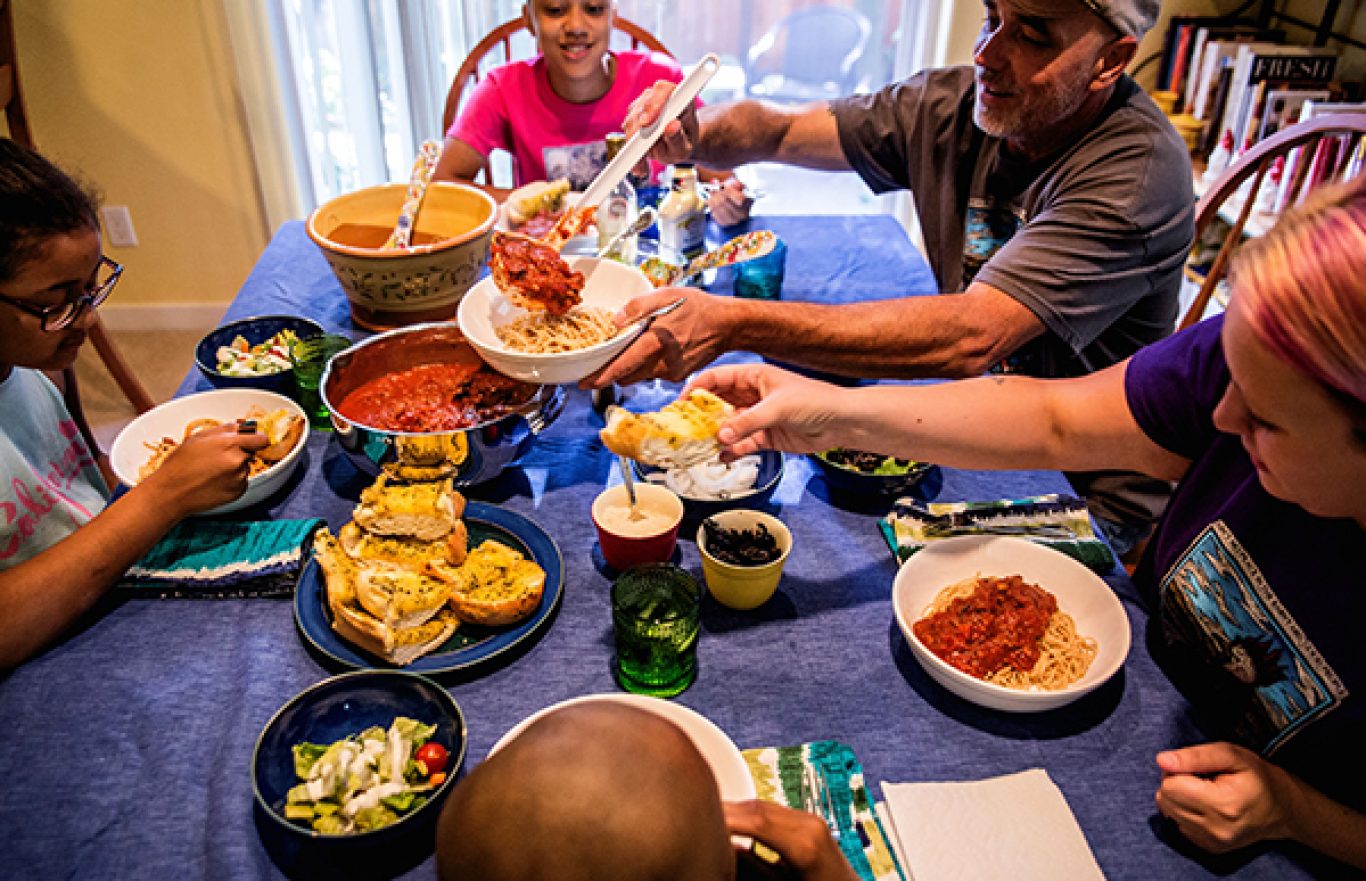Op-Ed: Keeping food on Oregon’s tables a continuing battle
Op-Ed: Keeping food on Oregon’s tables a continuing battle
By Susannah Morgan, CEO at Oregon Food Bank, and Jeff Merkley, U.S. Senator
April 1, 2018 – We are all better off when every person in our community has the opportunity to be healthy and prosperous. That’s why we have a shared responsibility to ensure that everyone has access to the most fundamental resource: enough food to eat.
Every month, 240,000 Oregonians receive food from the Oregon Food Bank Network. Through Oregonians’ generosity, the network is able to help the most vulnerable among us have enough to eat, helping our neighbors get through tough times or bridge the gap of jobs that don’t pay a family wage. More often than not, folks are able to receive fresh fruits and vegetables, meat, dairy, and whole grains that provide a solid nutritional foundation.
The federal government also provides support for food banks, through The Emergency Food Assistance Program (TEFAP). TEFAP provides nutritious foods from American growers and producers that serve as the cornerstone of food banks’ food supply. TEFAP also includes financial assistance that helps offset costs of critical operational expenses like warehouses, refrigeration, trucks, and drivers. The program benefits a wide array of Oregonians—families with low incomes, the agricultural sector, and food banks.
On March 23, Congress approved a 2018 spending package that boosted TEFAP storage and distribution funding by $5 million, to more than $64 million. The funding increase comes after a years-long effort to match funding to the rising need across the country. Through hard-fought battles on the Senate Appropriations Committee, funding has now increased $15 million over three years. The most recent boost adds $63,000 for the Oregon Food Bank Network at a critical time—a time when food banks across Oregon are expanding their cold storage capacity to provide more produce to families experiencing hunger.
By working together, we—food banks and federal representatives, along with each of you—have been able to accomplish the monumental task of helping to ensure our fellow Oregonians have enough to eat. But this latest funding victory can’t be our last.
The first line of defense against hunger in America is the Supplemental Nutrition Assistance Program, or SNAP, known as “food stamps.” For more than 40 years, SNAP has proven to be an effective and efficient way to both feed families and bolster economies by increasing money spent at local retailers. According to Feeding America, for every one meal provided by a food bank, SNAP provides an astonishing 12 meals. SNAP helps one in eight Americans—including 650,000 Oregonians—make ends meet. Most beneficiaries are our most vulnerable neighbors: children, seniors, and people with disabilities.
Over the last several years, proposals have been floated on Capitol Hill to cut SNAP benefits and restrict eligibility by upwards of one-third—a threat that has become more pronounced as the president has regularly put assistance programs on the chopping block. If Congress and the president followed through on cuts of that magnitude, the Oregon Food Bank Network would have to increase its food distribution to levels impossible to achieve through charitable donations. That is a massive increase in food distribution and clearly an impossible mandate through charitable donations.
Congress is scheduled to reauthorize SNAP this year as part of the farm bill. Taking food off the tables of Oregon families has no place in the farm bill or any other legislation. We will work together to fight against those proposals, and protect the people SNAP serves from unnecessary hunger and suffering.
Our neighbors should not be punished for facing economic hardship. They should be given the resources to be healthy and prosperous. We will continue working in partnership and with our generous community to ensure every Oregonian, every American has enough to eat.
The above appeared in The Oregonian on April 1, 2018.
